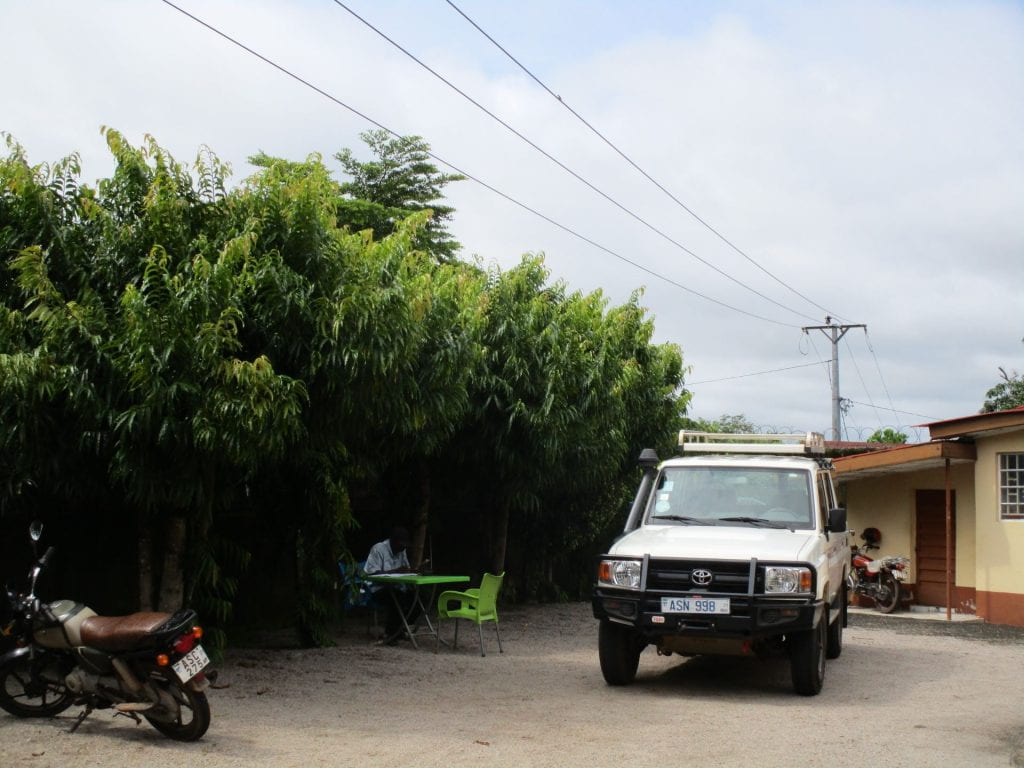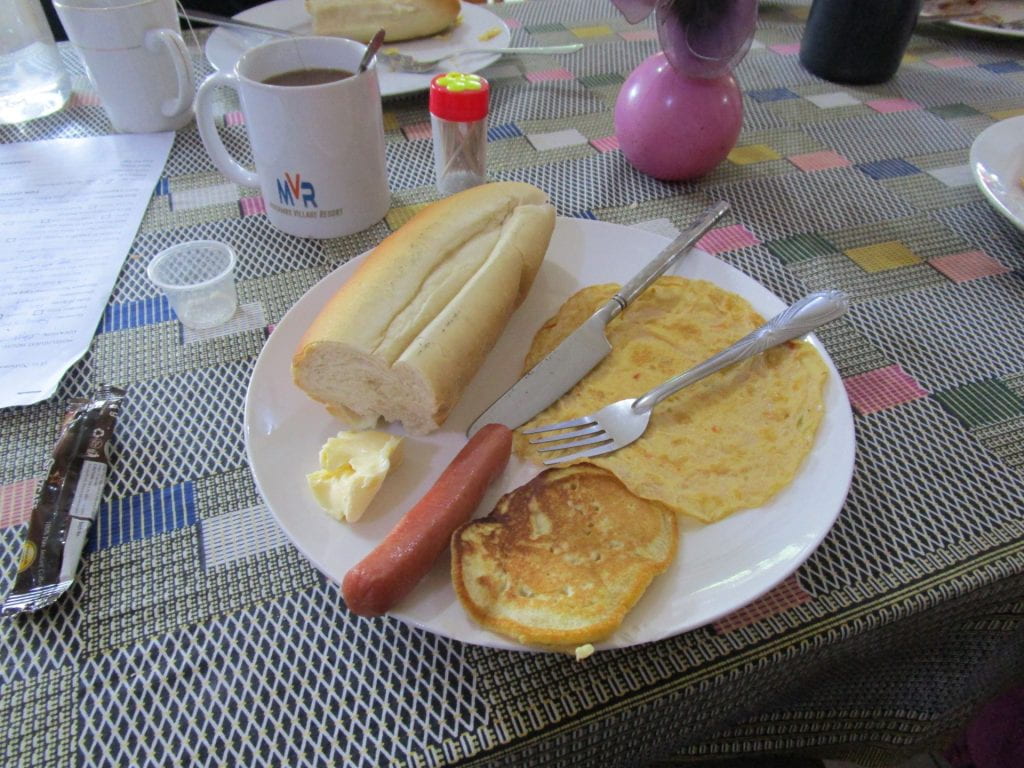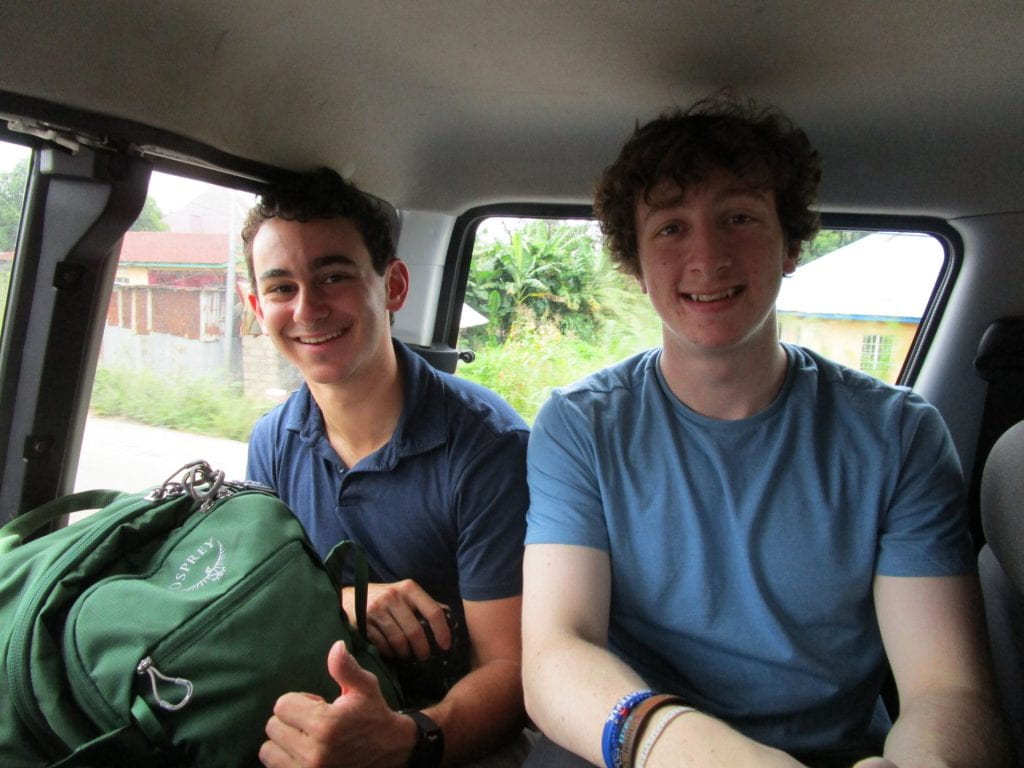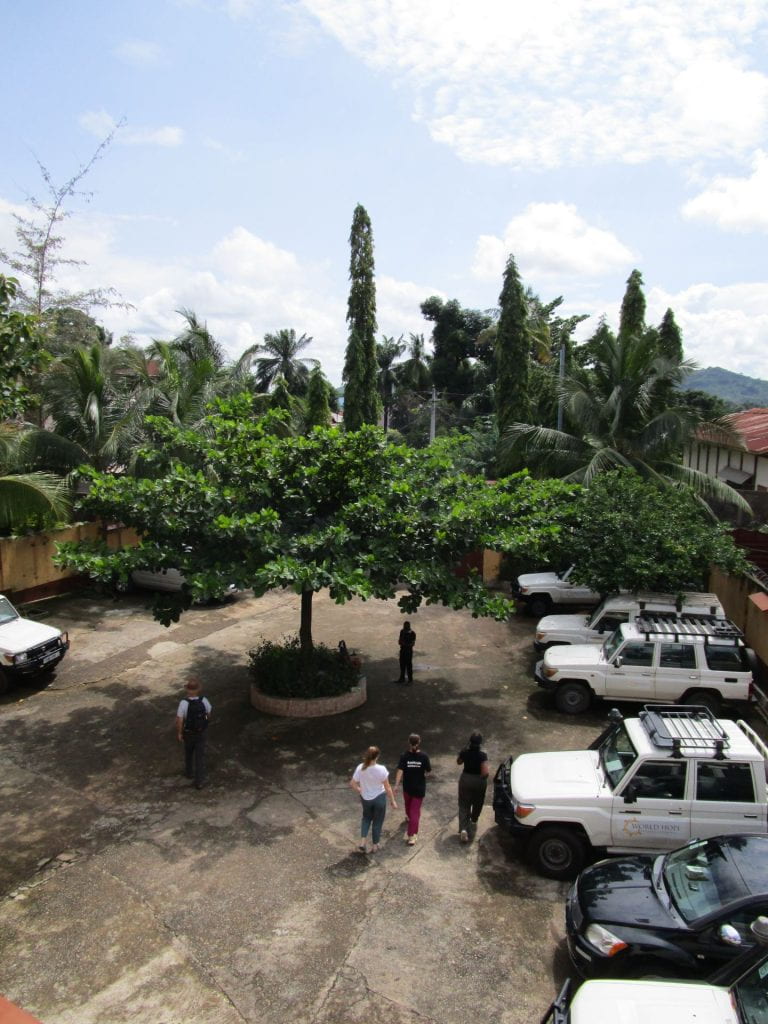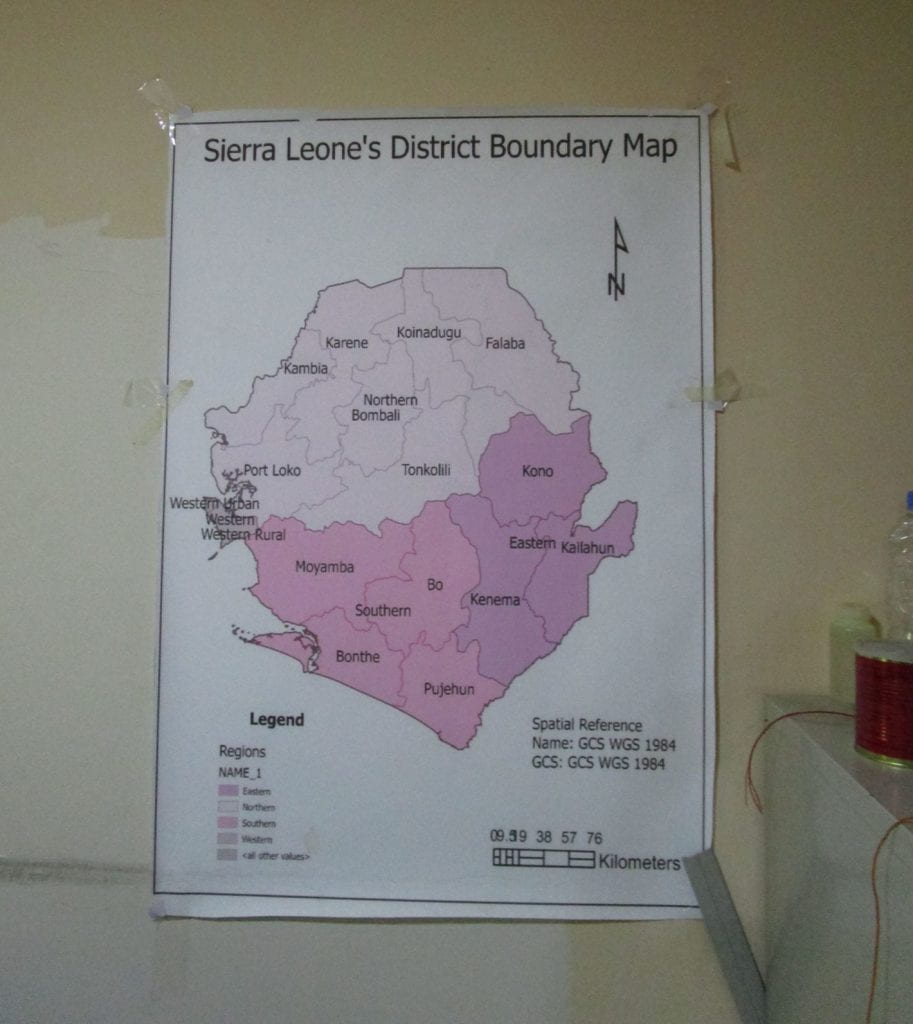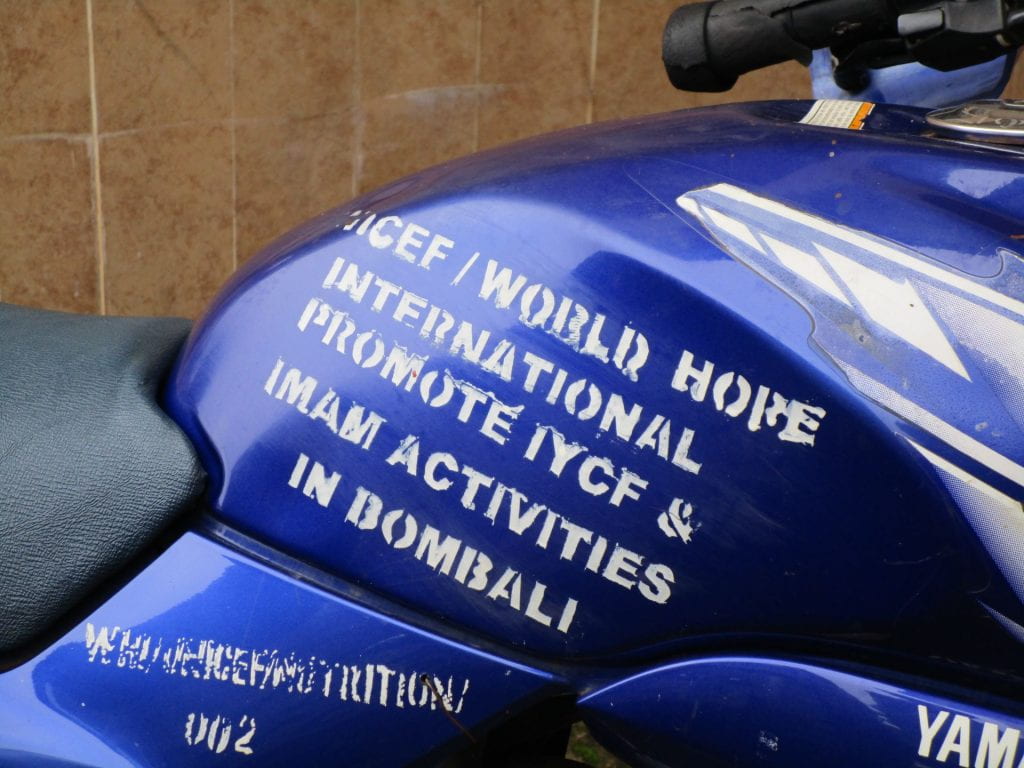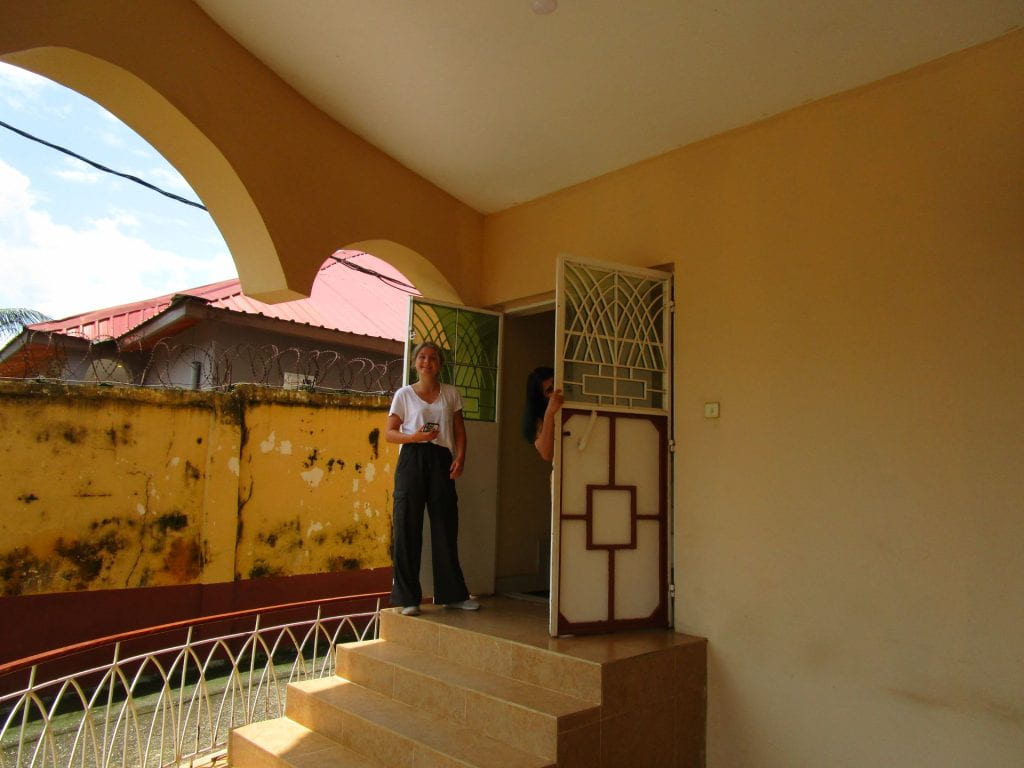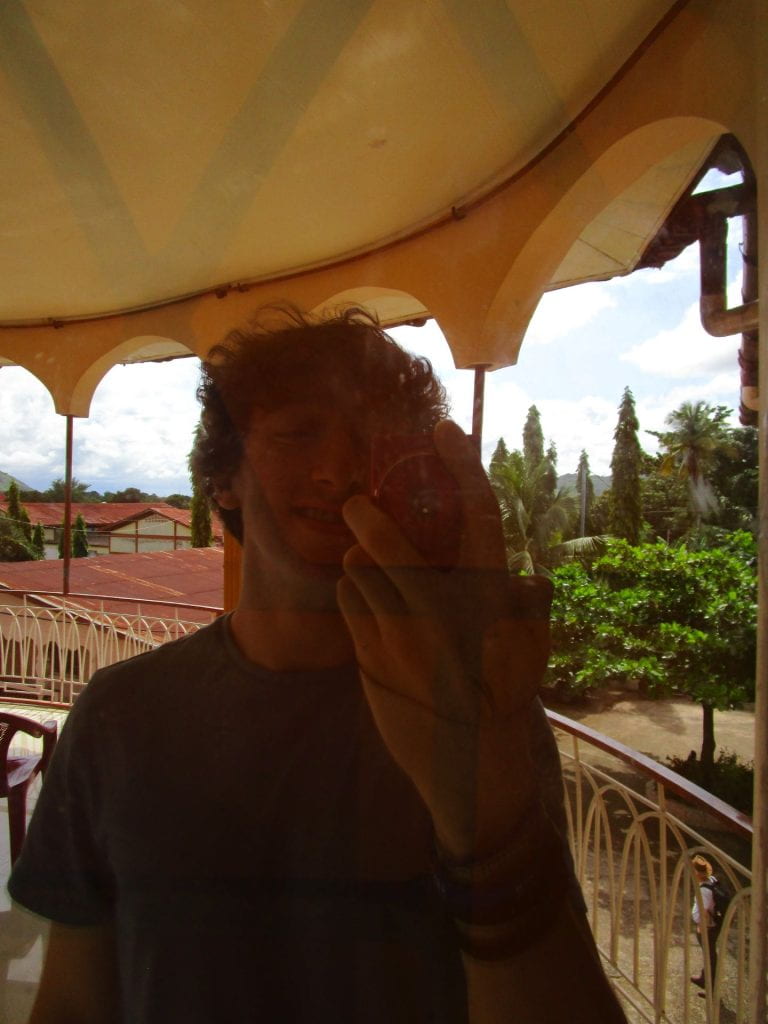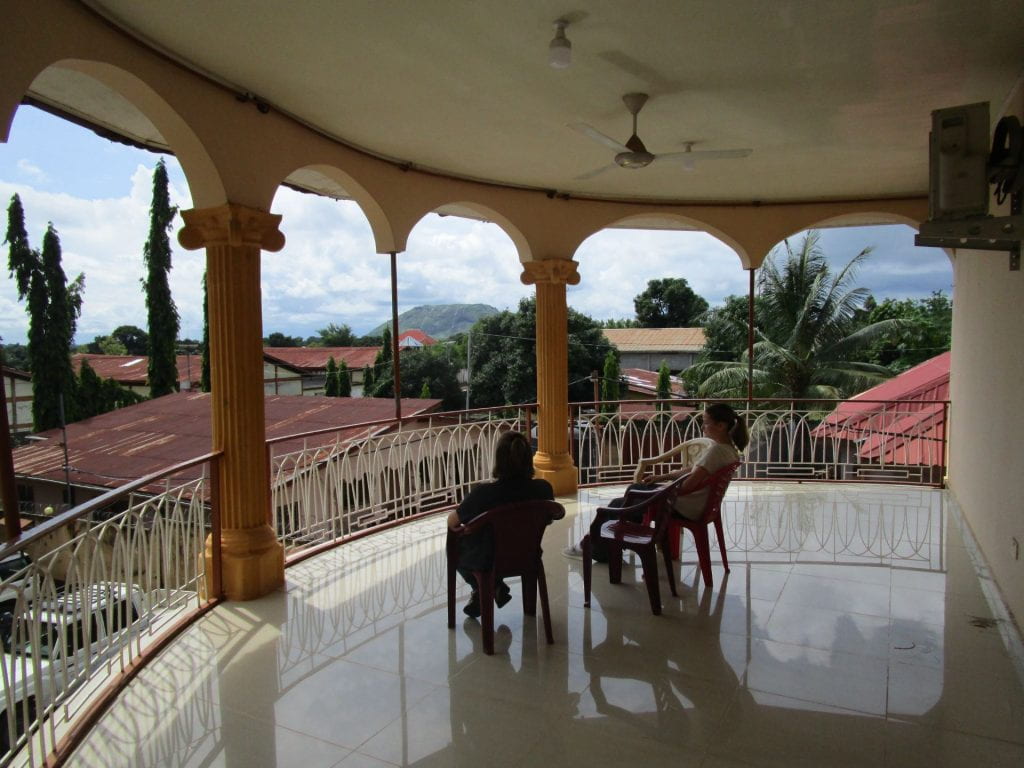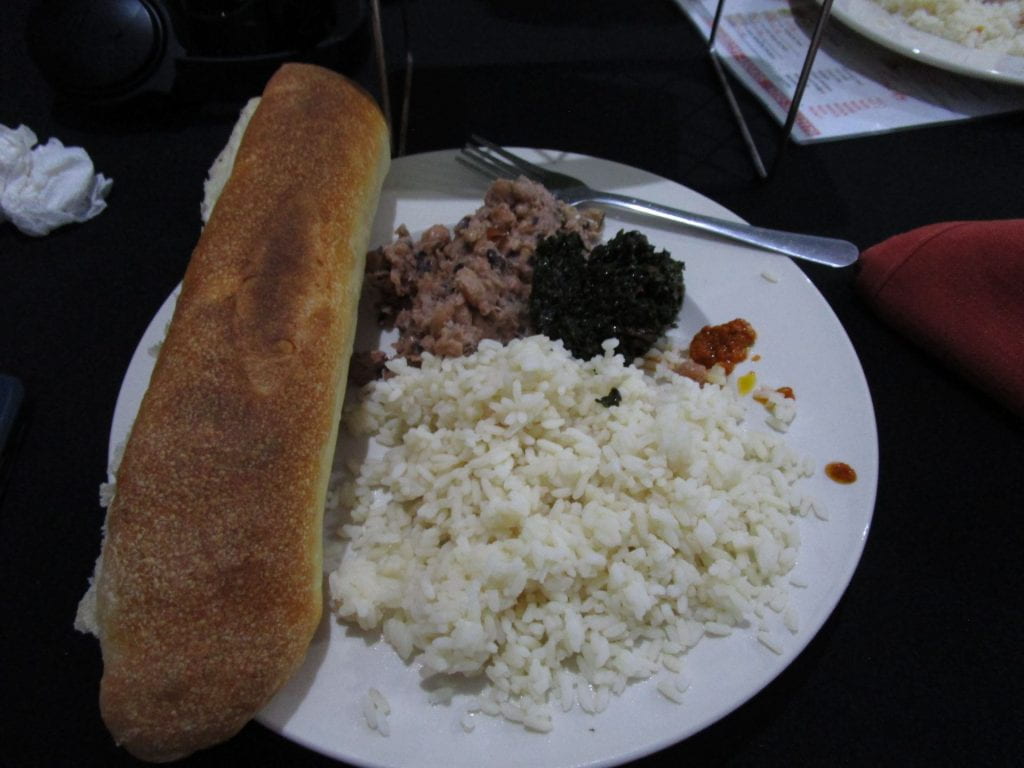Howdy! Today is Wednesday, August 9th, 2023. This was the Ukweli 2023 team’s third full day in Sierra Leone.
It was yet another day waiting for Institutional Review Board approval for our team’s cervical cancer research, but we are plugging along!
Sierra Leone is not only about long stares, flying kisses, and welcoming waves that we get from strangers–it is about learning to transcend languages and create an impact. The morning was as normal: wake up, breakfast, and out the door. At the start of the day, we met with Edwin Abu, the director of the cervical cancer screening department of World Hope International. We began reviewing our bank of twenty-five interview questions with him. but we realized it was best to have our translators–Alieu and Memunatu!–join us as well. As they are going to be relaying all of the questions day to day, we wanted their input and expertise in Krio to truly ensure women will understand the questions we are asking.

A neighbor at World Hope.
We reached out to Alieu and Memunatu, and they joined us for a second meeting around noon today. Together, we went over each one of the twenty-five questions individually. It was an arduous three-hour process, but incredibly fulfilling. Our group ran into some difficulties at the beginning with translating the English questions in real-time, so we pivoted our approach to translating each question. We wrote the translations for each question directly on our preparation documents, rather than needing the two to commit each complicated translation to memory. With the difficulty and abstraction of many of the words, as well as with the need to be mindful of the interviewees we will engage, this was certainly the right move.
Each of the questions was read through in English, and edited to ensure they were in straightforward, simple language. This makes the translations more accurate. Next, we inputted each question into ChatGPT. Though not perfect, the artificial intelligence translations from English to Krio were great. Memunatu and Alieu felt they were generally really accurate. They were strong enough that each of the questions could be better understood. Edwin, Alieu, and Memunatu were in constant collaboration about the translations they were doing. It was awesome to see. They spoke in fluent Krio, exploring common words that would or would not translate best in Krio. Sometimes, words might be better understood by other dialects like Limba or Timne. When they struggled with the selection of a word to Krio, we all stepped in and attempted to rearrange the question’s phrasing so that it could be translated better. The entire process was enlightening. I don’t think any of us have engaged in something like this together before.
What was especially fulfilling about our translation work was that it felt like our first full step diving into our work here in Makeni. The long hours in the hot office pass by when we know that we are able to work together and create an excellent research selection. We all believe the work we do here is so valuable and ripe for opportunity to make strides in the development of cervical cancer screening methods in low- and middle-income settings, as well as improving maternal awareness of health. It is great to have two motivated, friendly, and college student translators on our side, as they share our curiosity and gratitude.
After we meticulously went over each question, the group brainstormed locations we could visit for each of these interviews. Choosing locations that are different from the locations the team visited last year was important to us. This ensures a wider demographic and range of people we can include in all of our data.

There are many ways to get around in Makeni.
We agreed so far upon six locations: Kabombeh (Safroko Limba), Talent Town (Gbanti), Old Mabanta (Gbanti), Patevana (Bombali Shebora), Manonkoh (Bombali Shebora), and Maboileh (Bombali Shebora).
Ideally, we will have ten locations total so that we can interview approximately twenty women per location. This helps vary the local setting, as well as potential other factors such as income disparity and wealth concentration, to give us as holistic an understanding as possible of cervical cancer awareness in Sierra Leone. Edwin and we decided that this list is a good start, and we will ensure we constantly add to it. A great connection we’ve enjoyed is Mohammed Jawara. Jawara is very familiar with Makeni and introduced us to our translators. We plan to speak with him tomorrow, as he might be able to contribute places that would get us diverse interview subjects.
When we returned back to our workspace, the room was full with the smell of banana bread. We again missed buying snacks from our local vendors! Hurriedly, we visited the gateman and asked him to get us some roasted peanuts from the store right across the street. Almost every team is moving in and out of the office constantly, but we’ve stayed put. Quick snacks have been a great way to get immersed in Makeni life before our cervical cancer research gives us a direct opportunity to do so. It downpoured in the afternoon, and it was absolutely beautiful.

Rain on the courtyard tree.
Our team is excited to visit local tailors in the Northern Bombali area soon! They are able to stitch dresses with local fabric. A standout part of Sierra Leonean culture is fashion; it’s lovely to see people wearing so much color! They reflect the same color and vibrancy in their hospitality. Everyone here is very kind and welcoming.
Our team is geared up to engage in a series of mock interviews with the women who work in World Hope International tomorrow. Recognizing the need for accessibility and inclusivity, we are committed to reworking the questions at hand. Their input will be incredibly valuable in finding our flow and refining our content. We’ve noticed our questions possess a level of sophistication that aligns with well-educated individuals, and those who have invested considerable time in thinking over the intricate political details of healthcare accessibility in Sierra Leone. The importance of democratizing this knowledge and making it graspable for everyone does not go unchecked by us. Our research helps a diverse range of voices be heard, and we aspire to contribute to an ethical, richer understanding of health matters that concerns us all.
The rest of the day went pretty smoothly. We enjoyed a new meal tonight: white rice, curried chickpeas, okra, and bread–delicious! We rode back to the hotel in a rainy truck bed. The fresh air of Makeni will never get old.

White rice, curried chickpeas, okra, and bread.
Our program-wide meeting happened right as we got back, giving us the night to finish up work and relax. Sterling taught Reeza how to play chess tonight. Allegedly, it ended in a stalemate, although it was anyone’s game.

Sterling’s king stalemated by Reeza’s two queens and rook.
Until next time, yours truly,
Ukweli 2023






